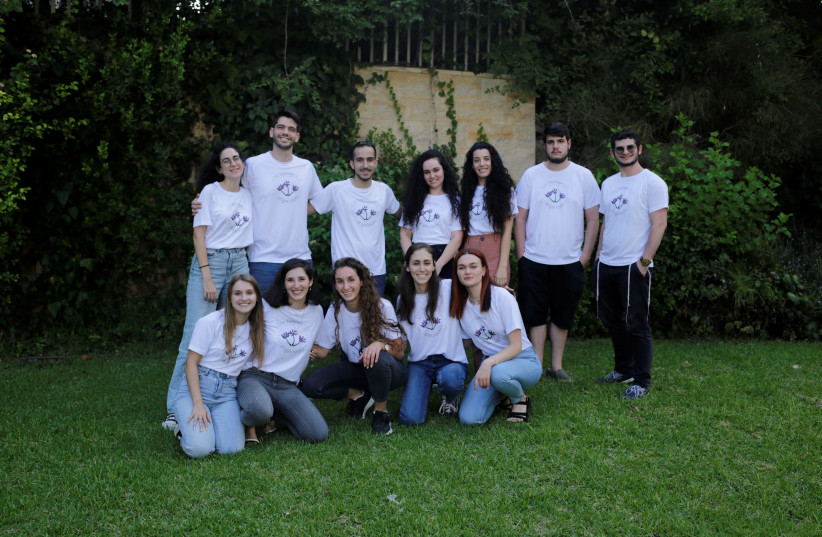A team of synthetic biology students at the Technion-Israel Institute of Technology in Haifa left on Tuesday for a competition in which they will present a new way to stop hair loss caused by chemotherapy.
The International Genetically Engineered Machine (iGEM) competition will be held in Paris on Wednesday and Thursday. The Technion team members are working on proving the feasibility of lab production of Decursin, a hair-loss deterrent, and its possible incorporation into preparations including shampoo, cream and more. Decursin is a major component of Angelica gigas nakai (AGN) root extract. Today, the molecule is produced from this rare seasonal flower grown in Korea in an expensive and inefficient process; the students are engineering special bacteria to produce Decursin industrially.
The natural substance has many beneficial properties including the ability to suppress inflammation, repress cancer, and prevent apoptosis – or programmed cell death, which includes hair cells.
The iGEM team from the Technion this year
This year, the iGEM team from the Technion includes 12 students from the Faculty of Biotechnology and Food Engineering in the Taub Faculty of Computer Science, the Faculty of Biomedical Engineering and the Rappaport Faculty of Medicine. The team recently received a special Impact Grant given to only a small number of the teams participating in the global competition based on their projected benefits to humanity.
Every year, the team chooses an innovative project in the field of synthetic biology, and this year, it involves substances that inhibit hair loss caused by chemotherapy. One of the most common cancer treatments, chemotherapy causes damage to healthy, living tissues and often hair loss, among other severe side effects.
The prestigious iGEM competition was founded in 2004 at the Massachusetts Institute of Technology (MIT) to give students, mainly undergraduates, a chance to experience scientific and applied research in the world of synthetic biology. Since its inception, the competition has been held in Boston. Due to the COVID-19 pandemic, it was held online for the past two years. Now, it will be held for the first time in Europe at the fair center Paris Expo-Porte de Versailles.
This year, more than 300 teams from around the world will participate in the competition, including three Israeli teams – one from the Technion, one from Tel Aviv University (TAU) and one from Ben-Gurion University of the Negev (BGU). The first Israeli iGEM team was established at the Technion in 2012 under the guidance of Prof. Roee Amit, a faculty member in the Faculty of Biotechnology and Food Engineering. He guides the Technion team to this day.
Over the years, teams from the Technion have won multiple gold medals in the competition. But according to Amit, “beyond participation and winning, it is important to understand that some of the developments by the Technion teams have already been turned into applied and commercial tracks and have a real impact in the world.
One of the most prominent examples is Koracell, an Israeli food-tech startup that produces cultured honey and other rare food products. The group previously developed an innovative technology for the production of honey without bees using a genetically engineered bacterium. This technology allows the honey’s texture and taste to be precisely designed, and it is also a platform for simulating other natural metabolic processes.”

